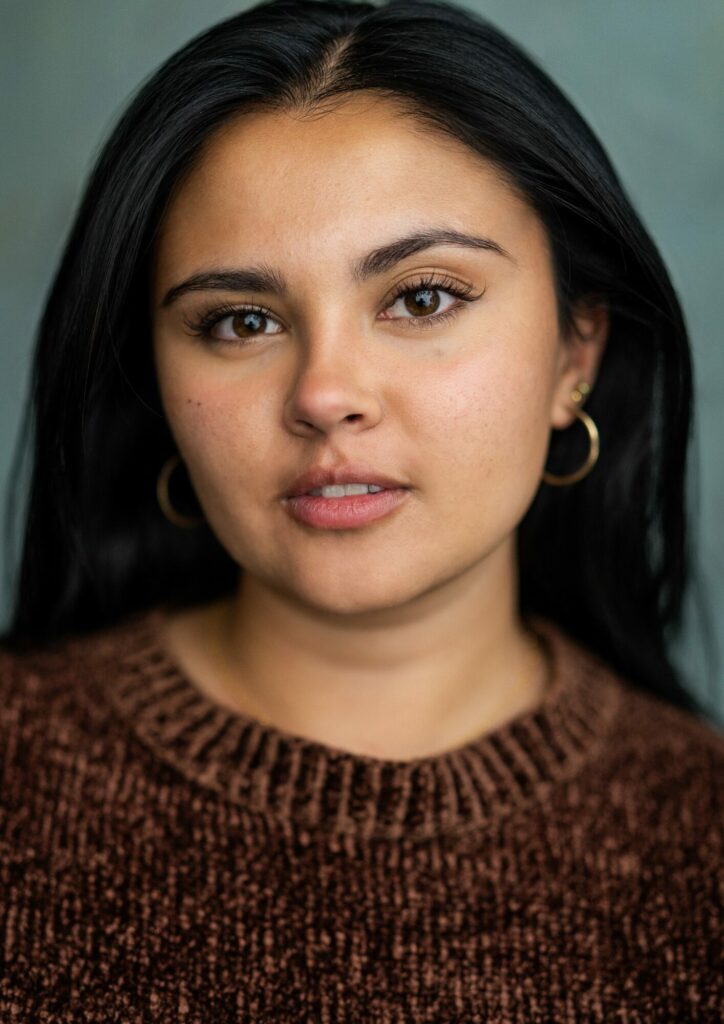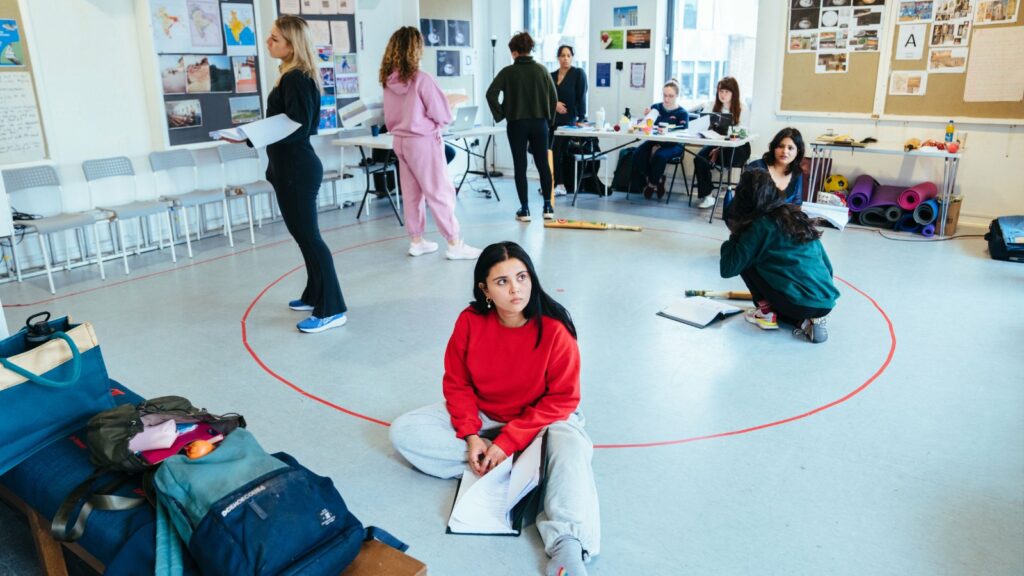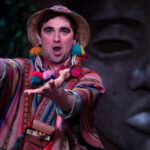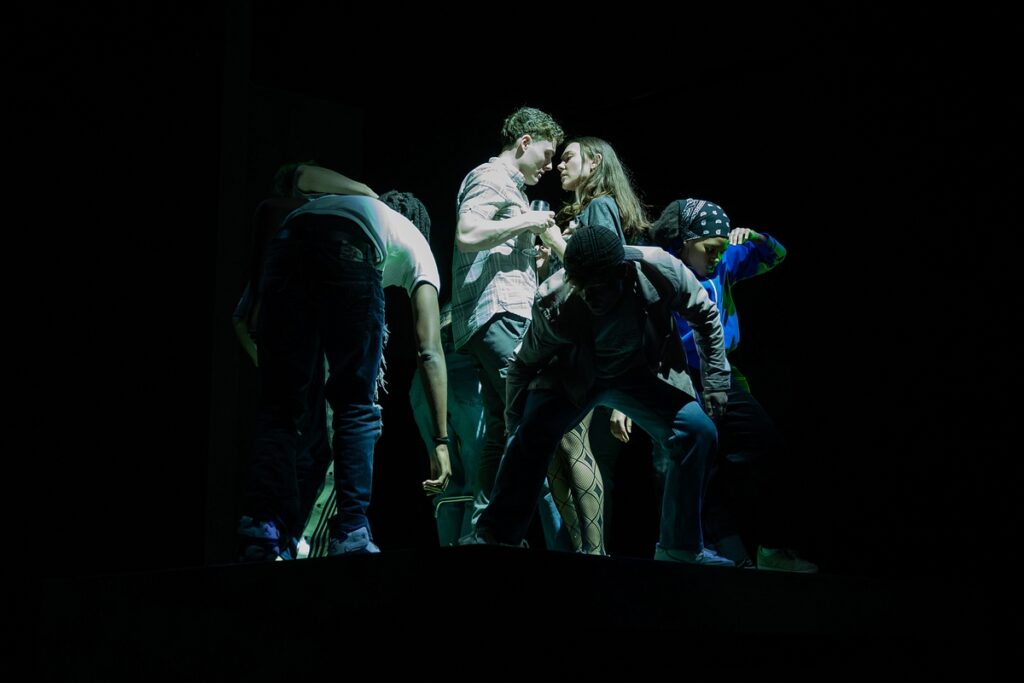
Making her UK stage debut, Aiyana Bartlett is set to appear in Kate Attwell’s Testmatch at Orange Tree Theatre in London. The co-production with ETT (English Touring Theatre and Octagon Theatre Bolton is directed by Diane Page and sees past and present collide during the Women’s Cricket World Cup at Lords as England play India.
It co-stars Aarushi Hanju, Haylie Jones, Tanya Katyal, Bea Svistunenko and Mia Turner alongside Bartlett. With the cast in rehearsals, we caught up with Bartlett to find out more about the play and her approach to playing multiple characters.
Q&A with Aiyana Bartlett
What can you tell us about Testmatch?
It is a play about women in cricket and colonialism/imperialism in India, two topics that might feel random when blurted out side by side but are very much connected. You’ll have to come and watch if you want to know how!
The first half is set now at Lord’s Cricket Stadium and it’s the ICC Women’s World Cup, it’s India vs England and India are at the end of their innings, but they’ve been rained off. Each player that the audience meets has such a complex mindset and motive, the first part tackles some big conflict but hopefully our audiences will be laughing on the way.
The second half is set in the 1700’s in ‘Calcutta’, Colonial India. Without spoiling the show all I can say is the audience will meet some of the colonisers as well as some of the locals.
The first time I read it, I was laughing, crying, getting angry, in shock, in awe – it took me on a ride! I had so many questions after I’d finished that I couldn’t help but keep rereading it over and over again. I am jealous of our audience in a sense because I won’t get to watch it in the theatres.
How does it feel to be making your UK debut in this UK premiere?
There are so many feelings! Weirdly, I’ve actually known about this play since September last year and in my head, it was one of those jobs that seemed so out of reach as a recent graduate. So, the cliché of ‘it feels surreal’ is very true for me. I also have always wanted to work on an ETT production, back when I was studying my A Levels, I did an essay on their production of Othello, so it feels very full circle for me.
I feel so privileged to be working with an all-female cast and majority female crew, it’s only early days and I already feel like we have cultivated a workspace that is really special.
I am also so lucky that I get to explore and learn more about my Indian heritage. Being mixed race I have always had this sense of not feeling ‘Indian’ enough to play certain roles or talk about certain things but being in this space I feel like I am so held, I am especially grateful to Tanya and Aarushi for this.
For me, I firmly believe mixed race characters in theatre/tv/film are underrepresented and I want to see more stories that explore what it is to be mixed race. It feels like an honour to have the opportunity to do so in the second half of this play, and the fact it’s my UK debut is just the cherry on top.

How have you approached your roles in the play?
The first thing I did was make a list of characteristics for each character and highlight the differences and similarities between them and myself. I wanted to get my head round the main differences before doing anything else. I have also found different references to help me with my accents for each character to make sure there is a variation. My native accent is an Essex/standard English one and I am having to do two different accents from India so verbatim resources have been my best friends in this project. I also gave my two characters different animals to help with their inner versus outer rhythms. I wrote biographies for them, delved deep into their needs as real people, and discovered a lot about their histories by creating them.
Because of the switch in genre between the first and second half, I then used different things to help, using more abstract tools for Daanya and more analytical tools and real-life references for India.
What is it like to explore colonialism in this way, through the lens of a present-day cricket match?
The absolute genius behind exploring colonialism through the lens of a present-day cricket match is that it highlights how much it has seeped into our DNA. This is something we have discussed quite a lot. You see how exploitative and expectant we can be as humans as well as how unfair the prejudices are that we harbour.
I think it is easy to look back on things and think ‘well that was then, and this is now’ without allowing it to affect us – exploring things in the present reminds audiences that history is made by us, we all have a part to play.
What do you think audiences will take away from the play?
I hope audiences leave with questions like ‘why aren’t we learning about these things in the British Curriculum?’ and ‘why are parts of history ignored or swept aside?’
I also hope they have a good laugh, this play is funny, like belly laughing funny – I want our audiences to know they can laugh!
That being said, I have learnt so much about how this segment of the past has shaped the world we live in today, so I would love for this play to spark our audience’s curiosity in not only the truth of the ‘British Raj’ but also other hidden chapters of history.
Testmatch is at Orange Tree Theatre, London from 20 April to 18 May















